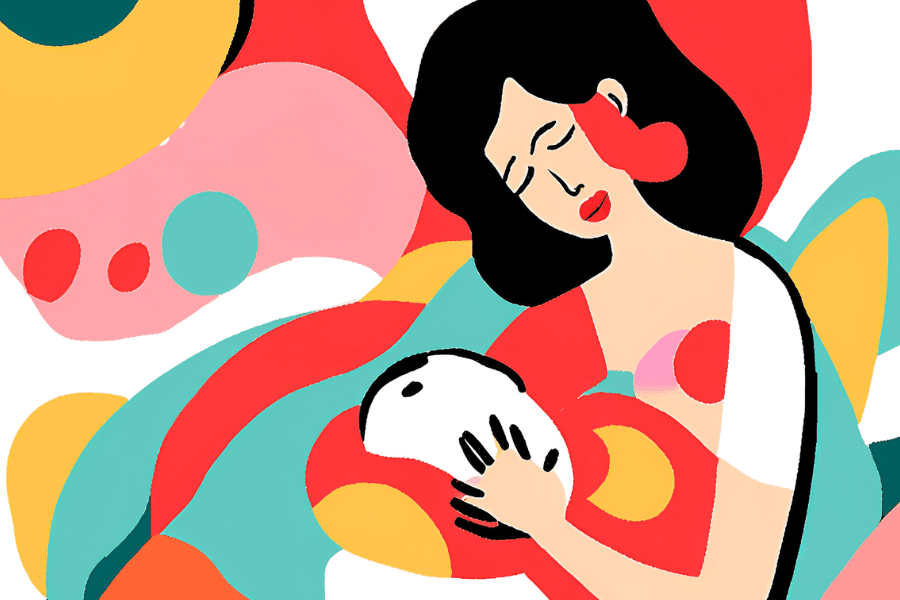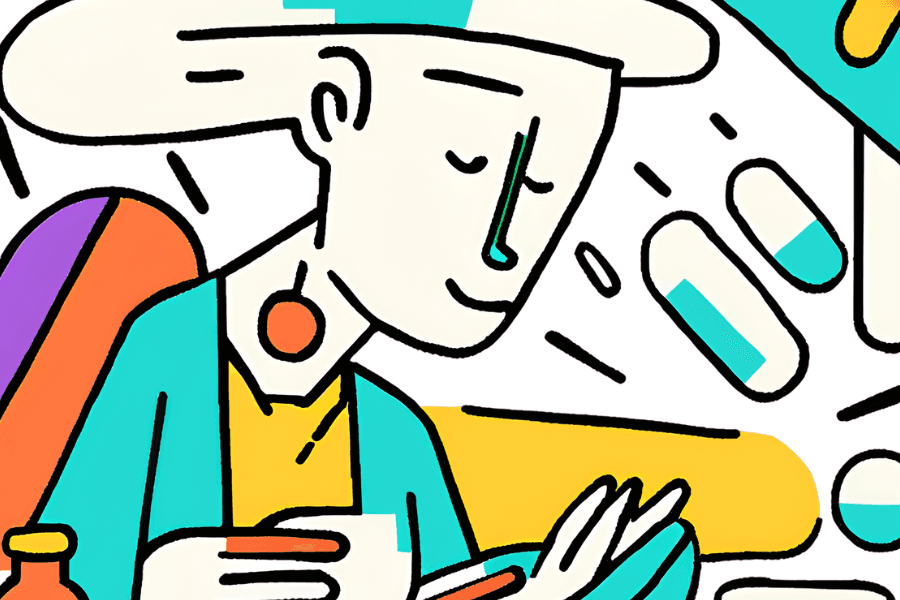Essential
·
3 min
·
December 3, 2021
AbdulKhaliq Akinwunmi
Harmattan has arrived, so it's natural to be worried about what it means for your health.
For me, it means dry coughs and heartburns, but for you, it's probably a sore throat or asthma crisis. You (and I) can easily overcome these inconveniences with the tips I'll share in this blog.
With the proper preparations, you can reduce the effects of harmattan while still enjoying the dry season!
But first, what's the Harmattan season?

Harmattan — also called "Doctor Wind" because of its rousing dryness — typically comes from late November to February and is characterised by a cold, dry, dust-laden wind.
It blows northeast from the Sahara and over West Africa to make its way to the Gulf of Guinea. The wind also blows towards the Caribbean and South America.
In Mediterranean Italy, the harmattan is known as the "Ghibli," but in Twi, it's called "Haramata," which means "tears your breath apart." That's a perfect description of what the harmattan season does everywhere it touches.
The dry season has numerous effects on human health — which could be positive or otherwise due to the wide disparity in the temperature. It can be as hot as 30 °C during the day, and at night, the cold could be at 15 °C. But it doesn't stop there.
The dust can be as tiny as 0.5-10 micrometers, making it difficult to be noticed. This strains the respiratory system and causes several respiratory problems.
Those with allergies or underlying respiratory issues, such as asthma and pneumonia, have a higher risk of respiratory problems during this time, so let's discuss what harmattan can do to your health.

The effects of harmattan on human health and existing conditions
For those without an existing condition, managing harmattan may be easier. But those nursing conditions like asthma and pneumonia usually have to take extra measures against harmattan.
The effects of harmattan on human health are:
Improper formation of red blood cells: During harmattan, the oxygen in the air is lower, causing hypoxemia — a situation where the oxygen level in the blood is lower than required. This reduction in oxygen quality leads to improper formation of the (sickle-shaped) red blood cells. And since sickle cell anemia patients don't have enough normal red blood cells, they're more vulnerable during this period.
If you have sickle cell anemia, you should:Drink more water
Eat high-protein diets
Avoid extreme cold and hotness
Rest adequately to recover from fatigue
Increase in asthma attacks: In asthmatic patients, the airways struggle because allergens in dust cause muscles to constrict and become too narrow. While those without asthma can still breathe through, asthmatics often end up panting for breaths. What follows is an inflammatory response from the immune system. White blood cells and other immune factors are deposited into the airways, making them swell, release thick mucus, and be filled with liquid.
This reaction chain causes a sputum-producing cough, wheezing, and breathlessness and makes it difficult to exhale correctly. This is why it's essential to:Be hydrated always
Ensure you have your inhaler with you
Use protective accessories such as sunglasses and face masks
Irritation and redness of the eyes: This becomes common since our eyes are also in constant contact with the atmosphere. The redness of the eyes results from continuous itching as the skin becomes drier, itchy, and even breaks along the lips and foot sole. It's essential to use glasses and moisturise your skin throughout this period.
Nose bleeding (Epistaxis): The dry air results from hotness and low humidity, common traits of harmattan. Ways to prevent Epistaxis include:
Staying away from smoking
Installing humidifier(s) in your house
Stopping the habit of picking your nose
Moisturising your nose thrice a day with a cotton swab & a thin layer of petroleum jelly
Using a saline nasal product to keep your nostrils moist
But because there are more solids in the air due to dust, the air becomes heavier and irritates the nose. This can cause sore throat, loss of smell, and headaches.Increase in infections: The immune system is often overwhelmed during this period, thereby increasing the spread of infections, such as tonsillitis, influenza, and meningitis which can cause stiff neck, high fever, headaches, and vomiting. It's thus vital to be extra cautious by taking the following preventive measures:
Eat more fruits & vegetables for vitamins
Stay hydrated by drinking more water & warm beverages
Moisturise your skin to prevent breakage
Adjust your outfits to protect the skin
Take vitamins and supplements for all the needed nutrients
The harmattan season isn't all gloomy, though. The weather condition doesn't allow breeding mosquitoes, which reduces the incidence of malaria fever, a prevalent disease in the Sub-sahara with a high mortality rate.

Summary
The best way to deal with harmattan is to avoid it altogether. But that's not an option if you're in Nigeria or other West African countries. By putting the tips mentioned to action, you can ensure good health for you and your loved ones during the harmattan season.
No spam, just certified good stuff





